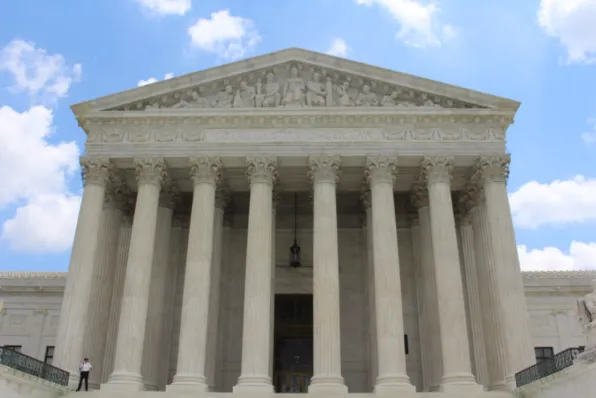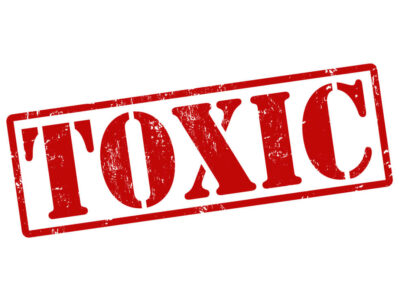In situations in which a worker is injured while fulfilling their job responsibilities, the injured worker is almost always the most vulnerable party. Most employees lack the financial means, legal knowledge, or resources necessary to effectively advocate for themselves against the deep pockets of their employer.
While it is widely recognized that injured workers are often left with crippling medical expenses and a loss of income, recent legal developments have made the situation more complex. The U.S. Supreme Court has ruled against injured workers banding together to file class-action lawsuits to collect the compensation needed to move forward. This shift in the legal landscape alters the path available to employees seeking justice and compensation.
The SCOTUS Ruling and Its Legal Background
In a 5-4 decision, the U.S. Supreme Court ruled in favor of employers, holding that workers cannot and should not file class action lawsuits against their employers for workplace injuries or related damages. According to The New York Times, the case involved a group of California workers who alleged that their employer failed to protect their personal data, exposing them to harm during a data breach.
This ruling echoes earlier precedent, most notably Epic Systems Corp. v. Lewis (2018), in which the Court upheld the right of employers to enforce arbitration agreements that prevent workers from joining collective legal actions. The outcome signals a broader trend: the Court’s increasing support for arbitration clauses that channel disputes into private, one-on-one resolution rather than collective lawsuits.
Why Arbitration Matters for Employers and Workers
Employers favor arbitration because it is typically faster, less costly, and handled behind closed doors, away from the public eye. Arbitration also allows companies to limit their exposure to large settlements that class action lawsuits can generate.
For workers, however, the consequences are significant. Arbitration removes the collective strength that class actions provide, forcing each injured worker to confront the employer individually. This imbalance is especially challenging in cases where the employer’s insurance carrier or legal team is well-resourced and experienced in minimizing claims.
Unlike litigation, arbitration often limits discovery, restricts the presentation of evidence, and results in decisions that cannot easily be appealed. For injured employees, this can feel like another obstacle in an already uphill battle to recover compensation.
Injuries and Claims Beyond the Physical
The ruling affects more than just workers with broken bones or visible injuries. Injuries sustained at work may be:
- Physical: fractures, repetitive strain injuries, chemical exposure, burns.
- Emotional/Psychological: stress disorders, anxiety caused by unsafe environments, trauma following workplace accidents.
- Financial: prolonged wage loss, diminished earning capacity due to disability.
- Quality-of-life impacts include the inability to return to prior employment, the need for long-term medical treatment, and vocational retraining requirements.
Workers must also remember that injuries sometimes involve third parties such as contractors, equipment manufacturers, or property owners. In these scenarios, workers may still be able to file separate personal injury lawsuits outside of workers’ compensation and arbitration.
The Role of Unions and Worker Advocacy
Unions and collective bargaining agreements once offered workers more leverage in negotiating fair treatment. While arbitration clauses limit class actions, unions can still provide important protections. In workplaces where unions are active, collective agreements can influence how disputes are resolved and ensure that employees are not left entirely to navigate the process alone.
For non-unionized employees, the absence of this collective shield makes access to legal representation even more critical. Without support, individuals often face employers and insurers directly, at a significant disadvantage.
Workers’ Rights After the Ruling
Although the Supreme Court’s decision restricts class action lawsuits, workers are not without options. Employees still retain important rights under multiple systems of protection:
- Workers’ Compensation Boards: Each state manages its own system. In California, the Division of Workers’ Compensation oversees claims and provides a framework for injured employees to obtain medical treatment and wage replacement.
- Occupational Safety and Health Administration (OSHA): This federal agency enforces safety standards and allows workers to report unsafe conditions.
- Department of Labor: Ensures compliance with wage and hour laws, which may intersect with workplace injury disputes.
- State Labor Codes: Many states, including California, have statutes that provide workers with additional rights and remedies beyond those offered under federal protections.
These entities illustrate that while class actions may be restricted, individual rights remain enforceable through workers’ compensation and regulatory oversight.
Practical Steps for Injured Workers
Recognizing that legal options may be limited, it is even more crucial for injured workers to follow the correct procedure after an accident.
First, seek immediate medical attention. Not only does this protect your health, but it also ensures that an official medical record exists documenting the injury. These reports can later serve as crucial evidence when negotiating with insurers or employers.
Second, report the incident to your employer promptly and in writing. Many states, including California, enforce strict deadlines; workers often have 30 days to provide notice. Be detailed about when, where, and how the injury occurred.
Third, file a workers’ compensation claim through your state’s board or division. Workers’ compensation is generally a no-fault system, meaning benefits can be available regardless of who caused the injury. Compensation may include medical treatment, temporary disability payments, and permanent disability benefits.
Finally, consult an experienced workers’ compensation attorney. Legal guidance is especially crucial in arbitration cases, where rules may limit discovery or appeal options. Attorneys can also determine whether third-party liability exists or whether state law provides avenues for challenging arbitration agreements.
Comparative Legal Remedies: Arbitration vs Mediation vs Litigation
To fully understand the landscape, workers should distinguish between three common resolution methods:
- Arbitration: A binding, private process often imposed by employers through contracts. It typically limits worker leverage.
- Mediation: A voluntary, non-binding process where a neutral mediator facilitates settlement discussions. Mediation may occur before arbitration or litigation.
- Litigation: Traditional lawsuits in state or federal court, where discovery, jury trials, and appeals are available. Litigation provides the strongest public accountability but may be blocked by arbitration clauses.
This comparison highlights the importance of understanding employment contracts and knowing when exceptions may apply.
Why Legal Representation Matters
Workers should not be deterred by news headlines about restrictive court rulings. While the Supreme Court’s decisions may limit the ability to pursue class actions, they do not eliminate the right to fair compensation. Workers’ compensation packages are still designed to cover medical bills, lost wages, and rehabilitation costs.
However, employers and their insurance carriers often seek to minimize payouts, delay approvals, or deny claims altogether. Experienced attorneys, such as those at Hussain & Gutierrez, can ensure workers receive the full benefits they are entitled to. Beyond workers’ compensation, attorneys may also pursue claims against negligent third parties or challenge unfair arbitration agreements under applicable state laws.
Frequently Asked Questions (FAQs)
Can I sue my employer after a workplace injury if I am required to undergo arbitration?
Arbitration clauses often restrict lawsuits in court. However, workers’ compensation claims remain available, and certain exceptions—such as gross employer negligence or third-party liability—may allow additional legal actions.
Does the Supreme Court ruling ban all class action lawsuits for workers?
No. The ruling applies to situations where arbitration agreements are in place. Some class actions, especially those unrelated to arbitration contracts, may still proceed.
What benefits can workers’ compensation provide?
Workers’ compensation can cover medical treatment, wage replacement, permanent disability benefits, and vocational rehabilitation. In California, the Division of Workers’ Compensation also provides access to return-to-work programs.
How long do I have to file a workers’ compensation claim in California?
Workers generally must notify their employer within 30 days of an injury and file a claim within one year of the incident. Missing these deadlines can jeopardize benefits.
What if a third party caused my workplace injury?
If a contractor, equipment manufacturer, or property owner contributed to your injury, you may have grounds for a separate personal injury lawsuit in addition to workers’ compensation.
Get Legal Help
At Hussain & Gutierrez, we understand that workplace injuries are not just physical events; they are life-altering experiences that affect families, livelihoods, and futures. In a legal environment shaped by arbitration clauses and restrictive Supreme Court rulings, having a knowledgeable advocate is more important than ever.
Our attorneys have years of experience representing injured workers throughout California, guiding them through workers’ compensation claims, arbitration hearings, and personal injury lawsuits against negligent third parties.
If you or a loved one has been injured at work, don’t navigate this process alone. Contact Hussain & Gutierrez today for a consultation and take the first step toward securing the medical care, financial support, and justice you deserve.



